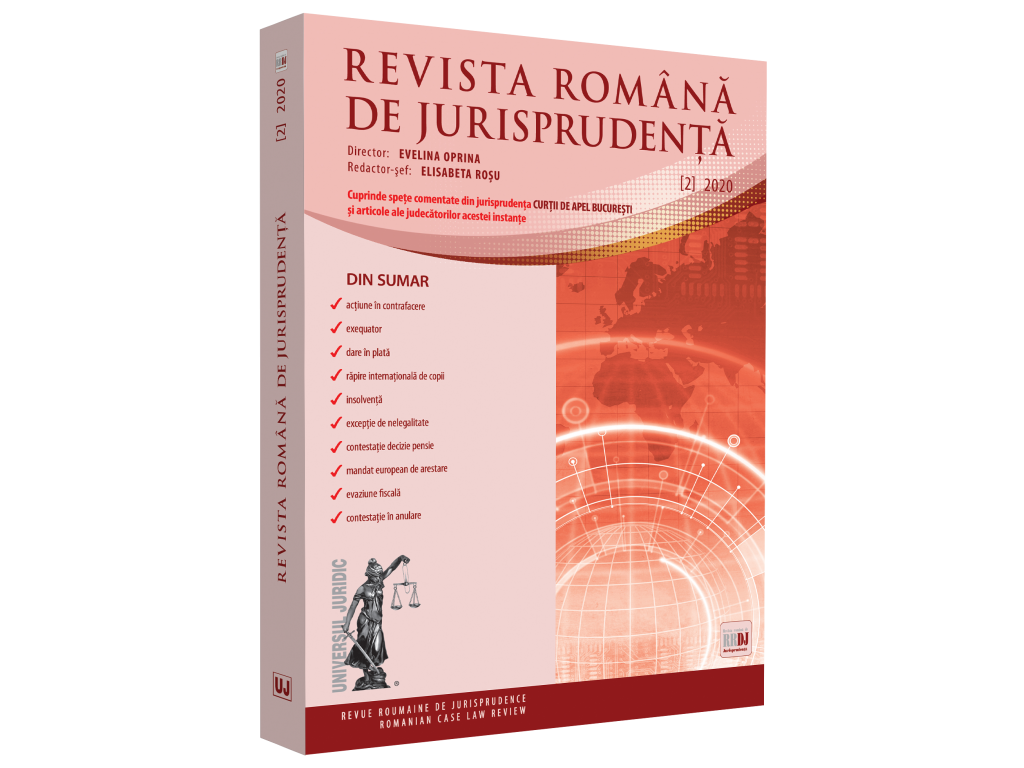Second appeal. The active role of the court versus the parties’ obligations to propose evidence. Proof of acceptance of the succession. Applicability of the presumption of gifts provided for under Article 845 of the Civil Code of 1864 versus the proof
DREPT CIVIL ȘI DREPT PROCESUAL CIVIL
Abstract
The lack of requesting and producing useful evidence regarding the issue of law, consisting in the non-acceptance of succession, invoked since the dispute was brought in the court, is the appellant’s fault, which did not understand to file the necessary defences and produce its evidence. It cannot impute upon the court the lack of the active role due to the fact that the parties have not debated the need for producing any evidence regarding the issue of acceptance of the succession, as the civil proceedings are governed by the principle of availability, and the party is liable for making efforts to prove the soundness of its statements. The party should have acted in a diligent manner and should have supplemented the evidence produced before the court of appeal by the testimonial evidence, consisting in the hearing of certain persons as witnesses to demonstrate the truthfulness of its statements. Instead, it has not requested the court of appeal to approve other evidentiary means to demonstrate the acceptance of the inheritance, and, before the court of appeal, no evidence has been expressly indicated, which was not taken into account by the court of appeal and which would have justified its capacity as receiving heir. As regards the allegation that the existence of the secret document has not been demonstrated in order to rely on the simulation of the sale-purchase agreement, it is shown that it was not necessary to prove the existence of any secret document, considering that, in this matter, the presumption of gifts was enshrined by the legislator. Thus, the party which relies on this presumption of gifts should prove: the existence of an agreement for consideration with the reserve of a beneficial interest within the responsibility of the transferor, as well as the capacity of the parties concluding the document for consideration, respectively the capacity of the seller as parent and the capacity of the buyer as rightful heir. The applicability of the relative presumption could have been rebutted by any means of evidence, however, the appellant did not produce any means of evidence in order to rebut the relative presumption established by the legislator.








